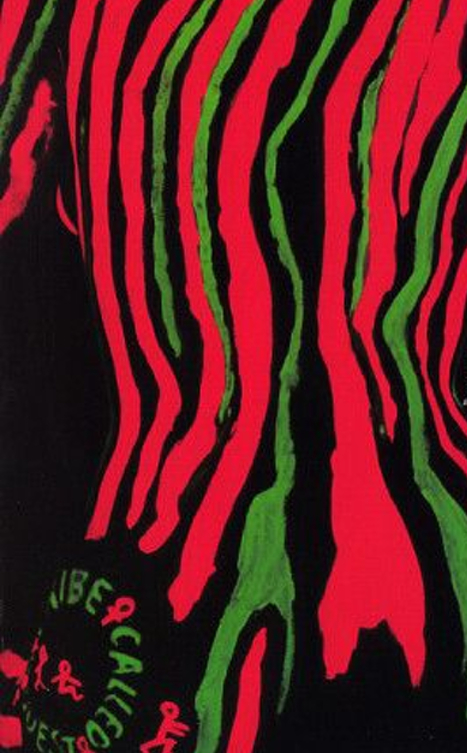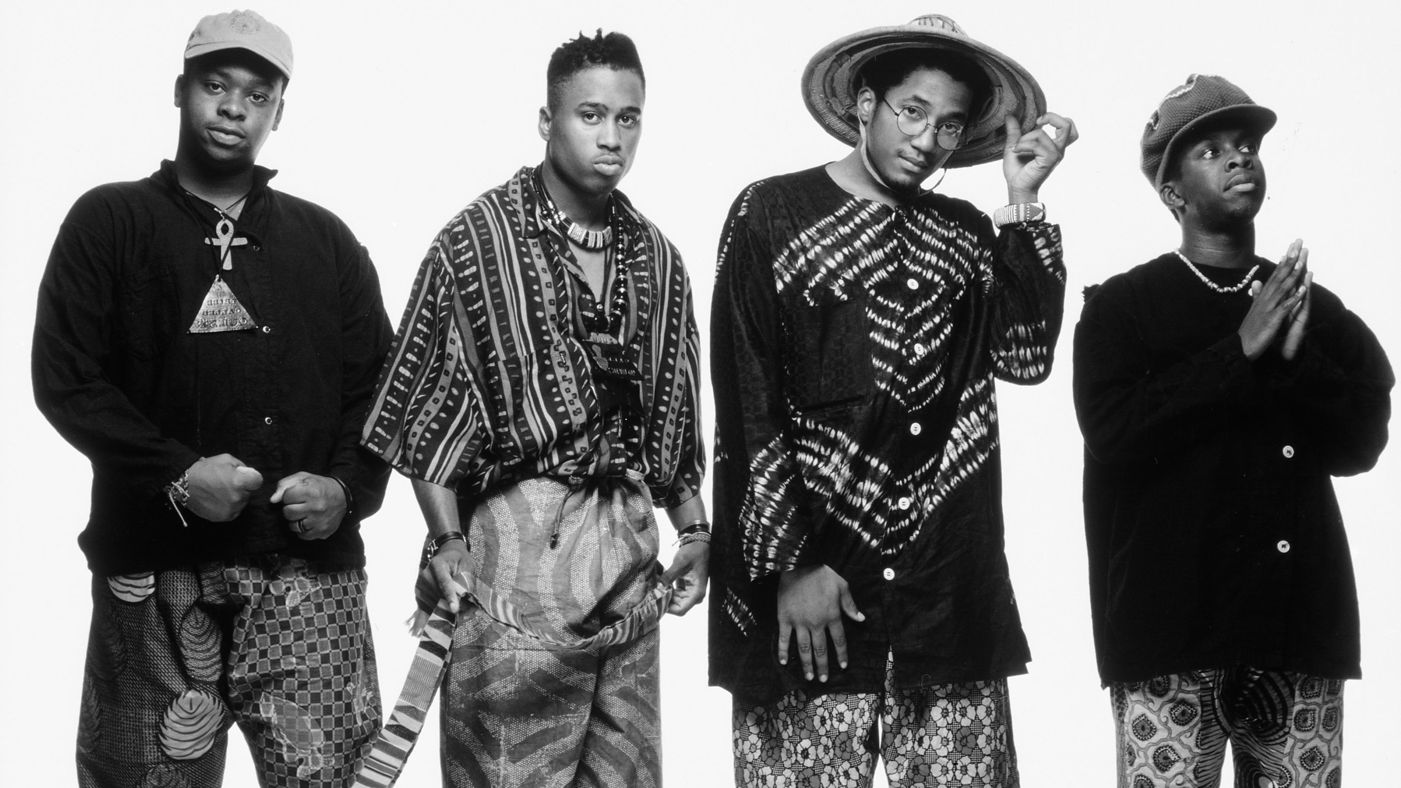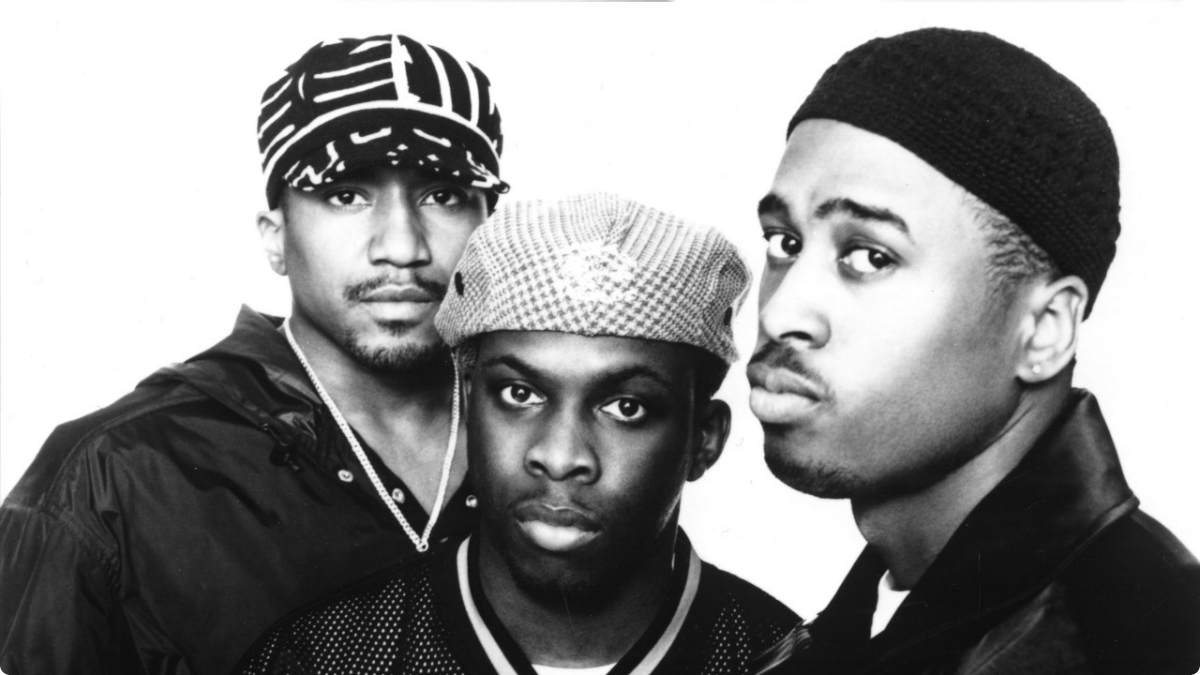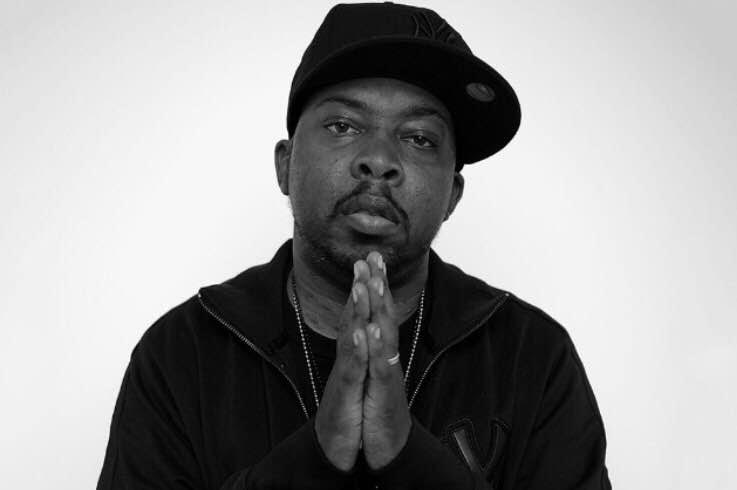
When De La Soul “officially” came on the scene with “3 Feet High and Rising” in the spring of 1989, I was in High School walking a not so fine line between my obsession with new wave synth pop and my love for rap (frankly I jumped between worlds), but when “Me Myself and I” was released, that line got narrower. De La’s creative universe included a collective of like minded souls from the Leaders of the New School and the Jungle Brothers to Monie Love and Queen Latifah. Their music and look stood out from formulaic, newly commercialized rap and somehow I felt like I didn’t need to choose between musical worlds.
Each group/artist in Native Tongues had their own style, yet they uplifted and amplified each other’s music in a powerful way. Collectively the Native Tongues were influential, but when A Tribe Called Quest entered their cosmos, that collective became a force. If “People’s Instinctive Travels” placed Tribe on the map, then the “Low End Theory” kept them there; it remains one of the most influential hip hop albums of all time. ATCQ’s music served as the soundtrack for my college years when I was schlepping my Jansport backpack around campus between classes at U.C. Berkeley. When the news of Malik Isaac Taylor’s passing came out early Wednesday, in an odd way it was a wake up call for us.

When I say us, I mean those of us who grew up with Tribe, not necessarily later fans familiar with Q Tip’s solo projects or new fans who go to K Town to listen to Ali Shaheed spin at the Line without knowing the words to Electric Relaxation… no, I’m talking to and about the old heads, the golden era fans. For us, Tribe’s music was our life; it played a pivotal role in shaping our creative and conscious minds as we navigated our new world, reconciling our past and present realities while forming our identities and coming into our own as individuals. It was during this time that I realized that there’s value in our differences. Phife, Q Tip, Ali Shaheed Muhammad and Jarobi White were all distinct individuals with diverse aesthetics and styles. Creatively, they developed a synergy that harmonized their differences resulting in a progressive sound that took hip hop to new heights. As my love for hip hop grew, Tribe taught me that my appreciation and affinity for disparate styles of music aren’t mutually exclusive; embracing that uniqueness lead me to new discoveries that helped me grow as a person. Unfortunately for Tribe, the same differences that fueled their success also led to personal and professional frictions that became evident in the group’s later album releases, but for me the early years were pure gold.

In 2011 Michael Rapaport released a documentary about Tribe that gave fans a somewhat raw and unfiltered look at the group’s conflicts in addition to the health struggles that plagued Phife. Throughout the movie I was mesmerized by their talent and the chemical reaction they created when working together; when they performed live in the film it was sheer magic. I remember thinking of how epic a reunion album and tour could be if they could put aside their differences to get into the studio again. In the documentary there was a scene in Tokyo of a bullet train rocketing out of the camera’s view with a force and momentum so fast you wanted to catch it to experience the speed of progress. The train whizzes by to the the bass line accompanying Phife’s opening lines to “The Chase Part 2”:
“Them can’t touch we, no them can’t touch we”
“Them can’t hold we, no they can’t hold we”…
Despite intermittent touring, for 20 years the individual members of the group went their own ways: Q Tip continues to produce and was recently named as the first “Hip Hop Curator” at the Kennedy Center. Ali Shaheed now lives in L.A. working with producers like Adrian Younge on some amazing vanguard neo soul projects and if you aren’t following Jarobi White on Instagram, please do so immediately. He’s amassed a large following among hip hop heads and foodies alike and he hosts a monthly “Tribe Taco Tuesdays” pop-up in Brooklyn. Despite all this, there was something missing– that magical, chemical reaction created by their music has been elusive, and as fans we just wanted them to put their personal beef aside to make great music again. The mourning of Phife has hit us so hard because we are not only mourning the death of an amazing artist and lyicist, but we are also coming to grips with our delayed mourning for Tribe as a group.
True fans continued to hold a torch for the Tribe of 1991-1993, waiting for an opportunity to hear new music and see them perform again. Sadly, that train continued forward and we’ll never catch it.
Rest in Paradise Phife. Rest in Power Tribe.


Leave a comment